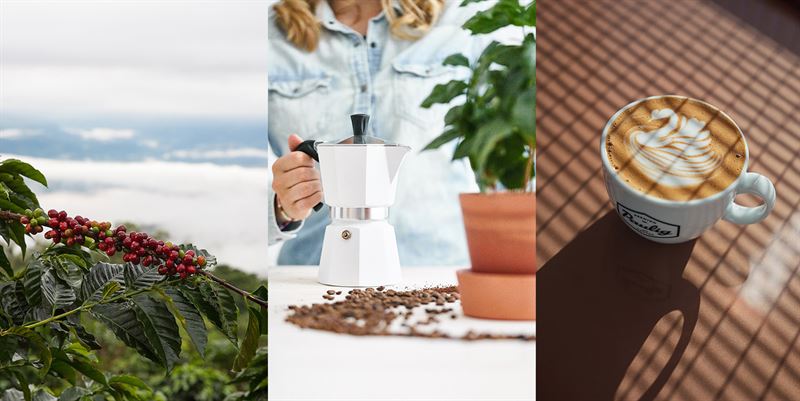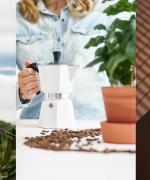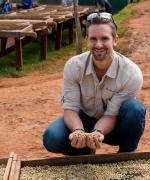
Paulig has been a forerunner in the coffee industry’s sustainability work. As one of the few large roasteries in the world, the company has used coffee beans from only verified sustainable sources since 2018. Through the long-term sustainability work in the coffee value chain, Paulig has been able to contribute to the livelihoods of more than 100,000 coffee farmers in the origin countries.
Paulig achieved carbon neutral certification for its Vuosaari roastery in the end of 2020 and has set an ambitious target to reduce its value chain emissions by 50% by 2030. The focus is on climate-smart agricultural practices that can enable lower-impact raw materials and better climate resilience for farmers in the future.
“We are happy that Finns appreciate our sustainability work and brands. Sustainability is embedded in everything we do. Our aim is to create flavours and sustainable taste experiences that leave a great aftertaste. We will continue the work to improve the livelihood of coffee farmers. In addition, we are also actively seeking new business models that promote circularity and reduce climate impacts in our value chain,” says András Koroknay-Pál, Head of Sourcing & Hedging, Green Coffee.
Paulig is also an active player in packaging development work. Paulig has increased the share of renewable materials in its premium coffee packages while decreasing the carbon footprint of the packaging by a third. Currently, Paulig is participating, for instance, in a research project in which renewable and recyclable material is being developed for the food industry to replace fossil plastic. Packaging development continues to be one of the key focus areas for Paulig and our ambition is that, by 2030, all our packages will be recyclable and will be made from renewable or recycled materials.
“We have ambitious sustainability targets and achieving them requires innovations and collaboration. Paulig already sources its coffee from fully verified sustainable sources, but we have decided to set the bar even higher, and our goal is that all of our raw materials that come from risk areas are 3rd party verified sustainable by 2030,” says Lea Rankinen, Director, Sustainability and Public Affairs at Paulig.
As an international food industry company, Paulig wants to encourage consumers to make more sustainable choices without compromising on taste or convenience. The Paulig Sustainability Approach 2030 is based on UN Sustainable Development Goals (SDGs).
Paulig’s Sustainability Approach and targets:
1. Products and services that enable the health and well-being of people and the planet: By 2030, 70% of the company’s net sales will come from products and services that enable the health and well-being of people and the planet.
2. Climate action and circularity: By 2030, the company will reduce greenhouse gas emissions from its own operations by 80%, and from our value chain by 50% from the 2018 baseline. Paulig´s climate targets have been approved by the Science Based Targets initiative and the targets are consistent with reductions required to keep warming to well-below 1.5 C. Paulig has also started to use carbon-neutral pallets. Paulig has set a target to use recyclable and renewable or recycled materials in its packages by 2030.
3. Fair and inclusive way of working: The company’s aim is to be a fair and inclusive partner and employer throughout its value chain. All of Paulig’s coffee is already 100% from verified sustainable sources and the company aims to extend this work to also cover other raw materials. The goal is for 100% of the raw materials from high-risk areas to come from sustainable sources verified by external parties by 2030.
Read more about Paulig’s sustainability work and targets: https://www.pauliggroup.com/sustainability
Sustainable Brand Index survey
The survey is conducted annually in Sweden, Norway, Denmark, Finland, the Netherlands, Estonia, Latvia and Lithuania. More than 60,000 consumers assess brands in the survey on the basis of how sustainable consumers find them. Each brand has been assessed by a minimum of 1,000 people over the age of 16. In addition to brands, the survey maps trends and the drivers of sustainable consumption.
The assessed brands are selected for the survey on the basis of their market position, net sales, market share and general brand awareness. The survey is based on the Sustainable Development Goals set by the United Nations.
For further information, please contact:
Pirjo Hästbacka
Communications Manager
+358 50 356 8359


